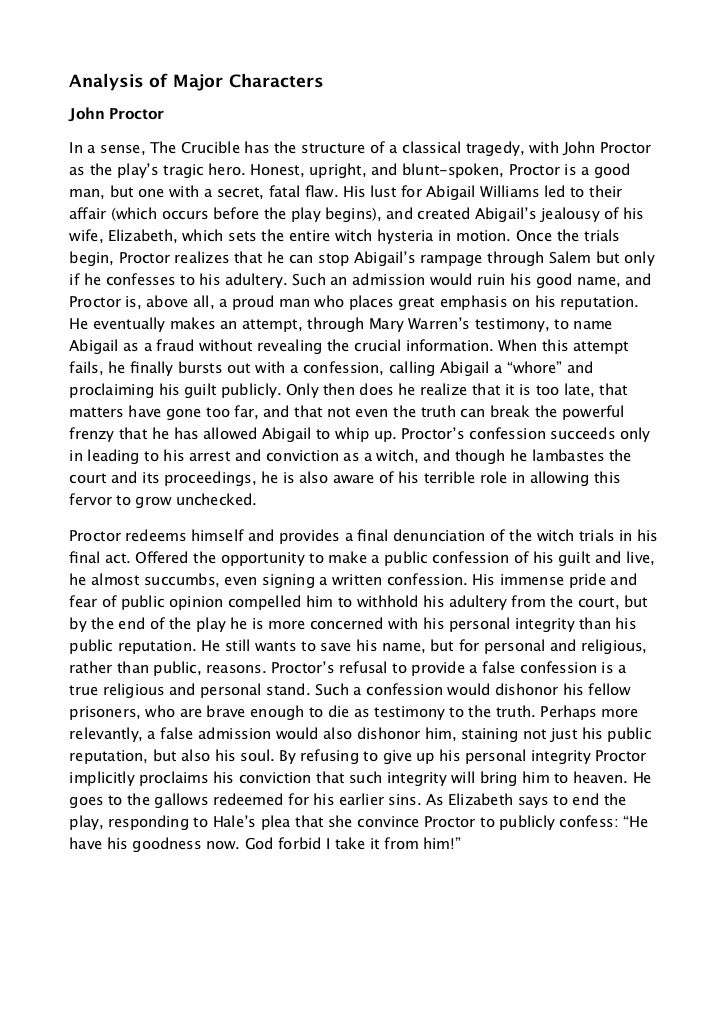

In the beginning of The Crucible, Miller makes John out to be not only a man only concerned with his vanity, but he also makes him out to be the only voice of reason in the first acts. You can see John Proctor’s development throughout as he goes from being a respectable character with secrets in his back pocket to an honest person with high moral standards in the end. As John Proctor denounces Abigail in a full courtroom, Miller’s word choice for John is expressed in harsh detail. As stated in the play,”It is a whore!” (193). For example, in Act Three, John Proctor’s tone changes from stubborn and unbothered to panicked and anxious. More specifically, the word choice that the character John Proctor is given. Arthur Miller makes his character from the real John Proctor with little information about his background to show his skill within the syntax, characterization, and most importantly his style of writing.įirstly, Arthur Miller sets the tone through provocative word choice. Miller’s character and the real person do have some similarities, but they have a great deal of differences as well. However, John Proctor is not just a made up character in Miller’s play, he is based off of a real person who lived during the same time period named John Proctor. This shocking plot twist changes the tone from belligerent to awestruck because throughout the story John Proctor’s name means a great deal to him and when he confesses to witchcraft, he not only ruins his name but also seals his fate. One of Miller’s characters, John Proctor, is wrongfully accused of witchcraft into which he admits soon after that these accusations are true. During what is known as the “Red Scare”, Americans are being accused of associating or being part of the communist party, much like in The Crucible where most innocent people are accused of witchcraft. As John Proctor creates even more hysteria and madness in Arthur Miller’s play, The Crucible, not only does this seal Proctor’s fate, but it also mimics the mood and aura of the Red Scare during the 1950s.

“I say– I say– God is dead!” (Miller 198).


 0 kommentar(er)
0 kommentar(er)
